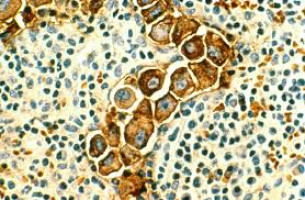
New research published in The FASEB Journal, shows that a commonly prescribed class of high blood pressure drugs may have the potential to slow the growth of triple negative breast cancer tumours.
These drugs, called "beta blockers" work by counteracting the pro-growth effect caused by adrenaline by affecting the the beta2-adrenoceptor.
"Previous studies have linked increased stress with accelerated onset of metastasis in some forms of breast cancer," said Michelle L. Halls, Ph.D., a researcher involved in the work from the Drug Discovery Biology Theme at Monash Institute of Pharmaceutical Sciences at Monash University in Parkville, Victoria, Australia.
"By understanding how stress accelerates invasion in aggressive breast tumour cells, this work will inform future studies into whether beta-blockers could be a useful adjuvant therapy in the treatment of some aggressive breast cancers."
To make their discovery, Halls and colleagues examined how an aggressive triple negative breast cancer cell responds to the stress hormone adrenaline.
They found that an aggressive breast cancer tumour cell has a cell surface protein called "beta2-adrenoceptor" that can binds both beta-blockers and the stress hormone adrenaline.
When bound to adrenaline, the beta2-adrenoceptor on these tumour cells stimulates a positive signalling loop to accelerate invasion.
When bound to beta-blocker, however, the accelerated invasion of these cells was decreased.
"This is excellent research that shows us that we still do not know the full potential of many of the drugs sitting in most medicine cabinets," said Thoru Pederson, Ph.D., Editor-in-Chief of The FASEB Journal.
"Not only does this shed light on how to potentially improve the effectiveness of triple negative cancer treatments, but it also sheds light on the full effect that these common drugs have on our bodies."
Source: Federation Of American Societies For Experimental Biology